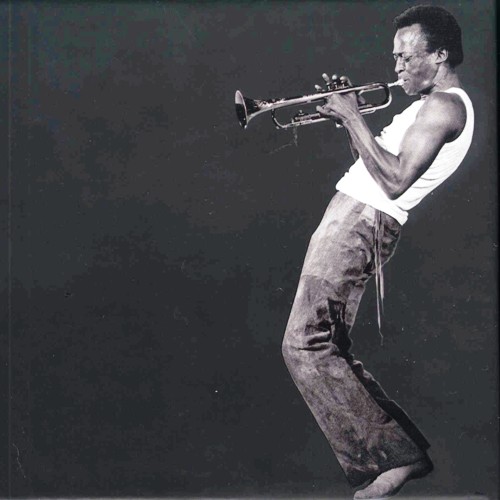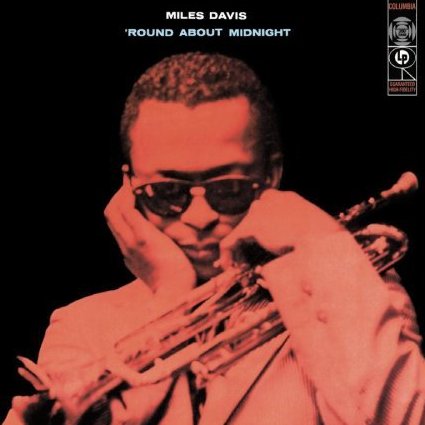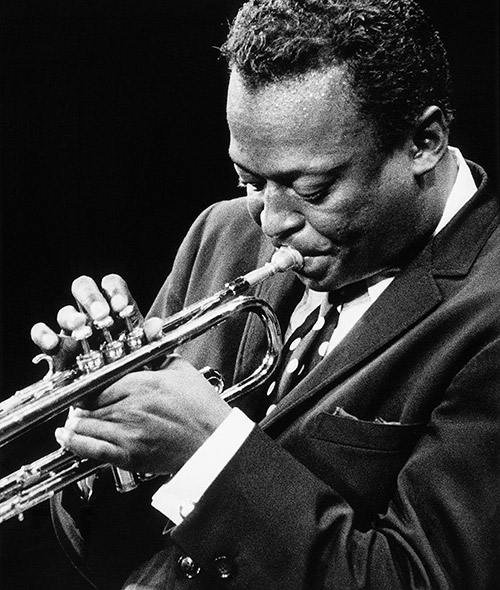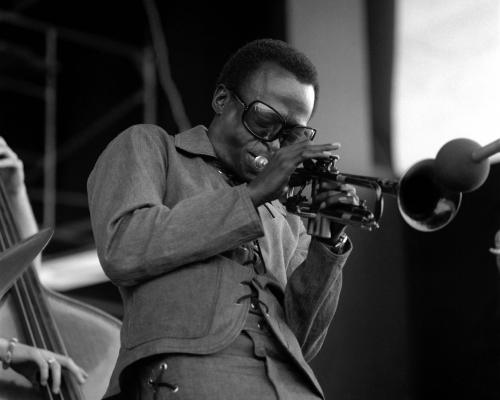Happy birthday Pete Townshend (read more)“If you don’t want anyone to know anything about you, don’t write anything.” “Rock ‘n’ Roll might not solve your problems, but it does let you dance all over them” |
 |
| Paul S. Williams (May 19, 1948 – March 27, 2013), born in Boston, Massachusetts, was an American music journalist and writer. Williams created the first national US magazine of rock music criticism Crawdaddy! in January 1966 on the campus of Swarthmore College ..He is also the author of more than 25 books, of which the best-known are Outlaw Blues, Das Energi, and Bob Dylan: Performing Artist, the acclaimed three-part series. Williams is a leading authority on the works of musicians Bob Dylan, Brian Wilson, and Neil Young, and science fiction writers Philip K. Dick (serving as the executor of his literary estate) and Theodore Sturgeon. |
 |
| Mickey Newbury (May 19, 1940 – September 29, 2002) was an American songwriter, a critically acclaimed recording artist, and a member of the Nashville Songwriters Hall of Fame. For a time, he was one of the most influential creative minds in Nashville and it’s arguable that he was the first real “outlaw” of the outlaw country movement of the 1970s. Ralph Emery referred to him as the first “hippie-cowboy” and along with Johnny Cash and Roger Miller, he was one of the first to rebel against the conventions of the Nashville music society. After being disappointed by the production methods used by Felton Jarvis on his debut album, Newbury got himself released from his contract with RCA and signed the first offer he received to comply with his condition that he could either produce his own albums or choose the producer. |  |
| Joey Ramone (May 19, 1951 – April 15, 2001) was an American musician, vocalist and songwriter, best known as the lead vocalist of the punk rock band the Ramones. Joey Ramone’s image, voice and tenure as front man of the Ramones made him a countercultural icon. |  |
| Bob Dylan: Ballad of a Thin Man @ Glasgow, (probably) 19 May 1966 (Video) |  |
Spotify Playlist – May 19 |
|
Tag Archives: Mickey Newbury
Today: Miles Davis passed away in 1991 22 years ago

“Don’t play what’s there; play what’s not there.”
― Miles Davis“Good music is good no matter what kind of music it is.”
― Miles Davis
From Wikipedia:
| Birth name | Miles Dewey Davis III |
|---|---|
| Born | May 26, 1926 Alton, Illinois, United States |
| Died | September 28, 1991 (aged 65) Santa Monica, California, United States |
| Genres | Jazz, hard bop, bebop, cool jazz, modal, fusion, third stream, jazz-funk, jazz rap |
| Occupations | Bandleader, composer, trumpeter, artist |
| Instruments | Trumpet, flugelhorn, piano,organ |
| Years active | 1944–1975, 1980–1991 |
| Labels | Capitol Jazz/EMI,Columbia/CBS, Warner Bros.Dial Records |
| Associated acts | Billy Eckstine, Charlie Parker,Miles Davis Quintet, Gil Evans |
| Website | www.milesdavis.com |
Miles Dewey Davis III (May 26, 1926 – September 28, 1991) was an American jazz musician, trumpeter, bandleader, and composer. Widely considered one of the most influential musicians of the 20th century, Miles Davis was, with his musical groups, at the forefront of several major developments in jazz music, including bebop, cool jazz, hard bop, modal jazz, and jazz fusion.
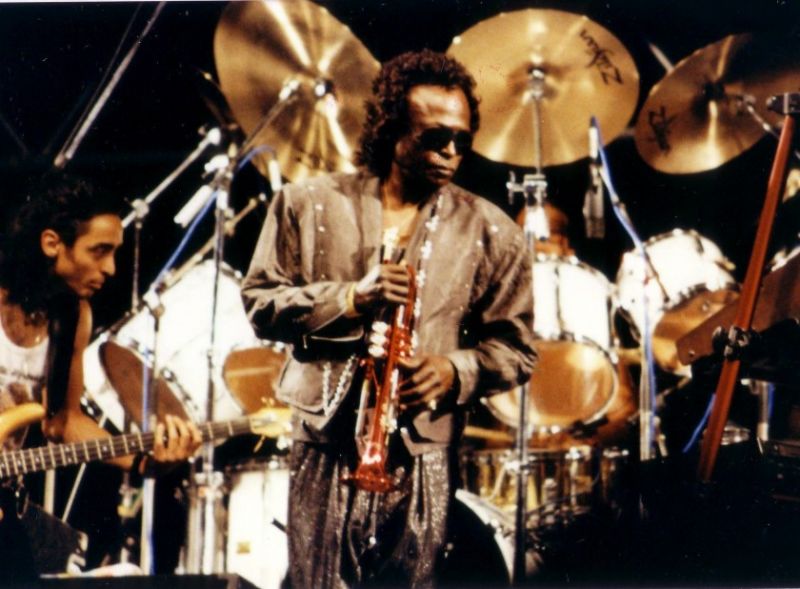
On October 7, 2008, his 1959 album Kind of Blue received its fourth platinum certification from the Recording Industry Association of America (RIAA), for shipments of at least four million copies in the United States. Miles Davis was inducted into the Rock and Roll Hall of Fame in 2006. Davis was noted as “one of the key figures in the history of jazz”. On December 15, 2009, the U.S. House of Representatives passed a symbolic resolution recognizing and commemorating the album Kind of Blue on its 50th anniversary, “honoring the masterpiece and reaffirming jazz as a national treasure.”
From allmusic.com – William Ruhlmann:
Throughout a professional career lasting 50 years, Miles Davis played the trumpet in a lyrical, introspective, and melodic style, often employing a stemless Harmon mute to make his sound more personal and intimate. But if his approach to his instrument was constant, his approach to jazz was dazzlingly protean. To examine his career is to examine the history of jazz from the mid-’40s to the early ’90s, since he was in the thick of almost every important innovation and stylistic development in the music during that period, and he often led the way in those changes, both with his own performances and recordings and by choosing sidemen and collaborators who forged new directions. It can even be argued that jazz stopped evolving when Davis wasn’t there to push it forward.
… read more over @ allmusic.com
So What:
Legacy, influence & awards:
Miles Davis is regarded as one of the most innovative, influential and respected figures in the history of music. He has been described as “one of the great innovators in jazz”. The Rolling Stone Encyclopedia of Rock & Roll noted “Miles Davis played a crucial and inevitably controversial role in every major development in jazz since the mid-’40s, and no other jazz musician has had so profound an effect on rock. Miles Davis was the most widely recognized jazz musician of his era, an outspoken social critic and an arbiter of style—in attitude and fashion—as well as music”. His album Kind of Blue is the best-selling album in the history of jazz music. On November 5, 2009, Rep. John Conyers of Michigan sponsored a measure in the United States House of Representatives to recognize and commemorate the album on its 50th anniversary. The measure also affirms jazz as a national treasure and “encourages the United States government to preserve and advance the art form of jazz music.” It passed, unanimously, with a vote of 409–0 on December 15, 2009.
His approach, owing largely to the African American performance tradition that focused on individual expression, emphatic interaction, and creative response to shifting contents, had a profound impact on generations of jazz musicians.
In 1986, the New England Conservatory awarded Miles Davis an Honorary Doctorate for his extraordinary contributions to music. Since 1960 the National Academy of Recording Arts and Sciences (NARAS) has honored him with eight Grammy Awards, a Grammy Lifetime Achievement Award, and three Grammy Hall of Fame Awards. In 2010, Moldejazz premiered a play called Driving Miles, which focused on a landmark concert Davis performed in Molde, Norway, in 1984.
All Blues – 1964:
- Winner; Down Beat Reader’s Poll Best Trumpet Player 1955
- Winner; Down Beat Reader’s Poll Best Trumpet Player 1957
- Winner; Down Beat Reader’s Poll Best Trumpet Player 1961
- Grammy Award for Best Jazz Composition Of More Than Five Minutes Duration for Sketches of Spain (1960)
- Grammy Award for Best Jazz Performance, Large Group Or Soloist With Large Group for Bitches Brew (1970)
- Grammy Award for Best Jazz Instrumental Performance, Soloist for We Want Miles (1982)
- Sonning Award for Lifetime Achievement In Music (1984; Copenhagen, Denmark)
- Doctor of Music, honoris causa (1986; New England Conservatory)
- Grammy Award for Best Jazz Instrumental Performance, Soloist for Tutu (1986)
- Grammy Award for Best Jazz Instrumental Performance, Soloist for Aura (1989)
- Grammy Award for Best Jazz Instrumental Performance, Big Band for Aura (1989)
- Grammy Lifetime Achievement Award (1990)
- Australian Film Institute Award for Best Original Music Score for Dingo, shared with Michel Legrand (1991)
- Knight of the Legion of Honor (July 16, 1991; Paris)
- Grammy Award for Best R&B Instrumental Performance for Doo-Bop (1992)
- Grammy Award for Best Large Jazz Ensemble Performance for Miles & Quincy Live at Montreux (1993)
- Hollywood Walk of Fame Star (February 19, 1998)
- Rock and Roll Hall of Fame Induction (March 13, 2006)
- Hollywood’s Rockwalk Induction (September 28, 2006)
- RIAA Quadruple Platinum for Kind of Blue
- St. Louis Walk of Fame
I know what I’ve done for music, but don’t call me a legend. Just call me Miles Davis.
Album of the day: ‘Round Midnight (1956):
Other September 27:
Continue reading Today: Miles Davis passed away in 1991 22 years ago
The Best Songs: An American Trilogy – Mickey Newbury
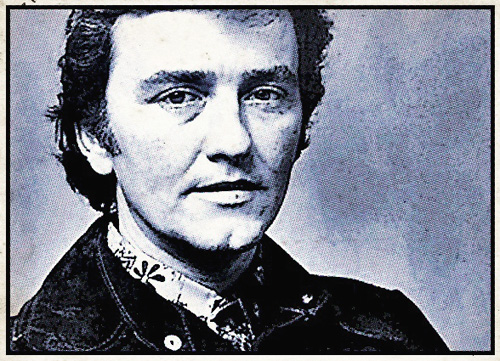
“Mickey Newbury is a poet” – Johnny Cash
Mickey Newbury’s most famous song, his biggest hit, is An American Trilogy. A song that pairs a southern song written by a northerner with a slave spiritual imported from the Caribbean. Actually it combines three songs that was not supposed to work together, it interlace “Dixie”, “Battle Hymn of the Republic”, and “All My Trials”. It is quite ironic that the song Mickey Newbury is best-known for is the only one he didn’t write, the medley that was adopted by Elvis as a centrepiece of his Vegas-era shows.
In 1970 the political climate in USA was extremely tense. Nixon, Vietnam, Cambodia, demonstrations against the war , Business Week Magazine wrote: “This is a dangerous situation…it threatens the whole social structure of the nation…”

White students in integrated southern schools insisted on using Dixie as a school-fight song, while black students protested, as they saw it as an anthem for white supremacy. Dixie was even banned in some states in the south.
Mickey Newbury decided to sing it as a statement against censorship. The arrangers advised him strongly against it, but Newbury told them to get the riot squad in.
Joan Baez, Odetta, Barbara Streisand, Mama Cass and Kris Kristofferson were in the audience.
“…the great and the good of Hollywood who had gathered on Thanksgiving weekend 1970 to see and hear this modes fellow from The Lone Star state make his West Coast Debut and were stunned into silence as they witnessed Mickey Newbury give the performance of his life.
It seemed as if the song was not just coming from inside him but as if he was outside himself and inside the song. The sound pushed out in waves. Calming, resolute, cleansing. The atmosphere in the club seemed to be frozen in slow motion, moving with the illusion of stillness. The entire audience rapt in the moment, as if trapped in amber, attention fixed upon the solitary figure on stage illuminated by a soft curtain of light, with just his guitar for accompaniment.
And that illusion was broken only by a tear that rolled down the cheek of a great gospel singer sitting in the audience. ” (liner notes: An American Trilogy 4 disc set)
This is fine version two years later, from the British Tv-show The Old Grey Whistle Test:
…Musically, however, it sounds overly serious and antiquated, almost quaint– more an artifact from the period than a durable piece of music.
And yet, “An American Trilogy” reveals Newbury’s complex approach to songwriting and album sequencing: Every word or line or stanza or song complements the others and shades their meanings, contributing crucially to the whole.
“Originally I intended to do just Dixie. It had the connotation of being strictly a Southern song that was associated with racism…I thought it was unfair so…in the middle of the show I started to do Dixie” – Mickey Newbury
Everybody held their breath…
“I was sitting next to Odetta, and I have to admit I turned a little green. What happened the next seven or eight minutes was magic.” – Susan (Mick’s wife)

The way Newbury presented Dixie, was not as a battle anthem, but as the slow, intense tune that we know today. He brought out its beauty and significance by slowing it down. He in fact had gotten the idea after hearing Barbara Streisand slowing down the song Happy Days Are Here Again and thereby infusing the song with the meaning and impact that was “hidden” in the song.
Here is another fine rendition, probably from the 80s:
Continue reading The Best Songs: An American Trilogy – Mickey Newbury
Today: Miles Davis passed away in 1991 – 21 years ago
“Don’t play what’s there; play what’s not there.”
― Miles Davis“Good music is good no matter what kind of music it is.”
― Miles Davis
From Wikipedia:
| Birth name | Miles Dewey Davis III |
|---|---|
| Born | May 26, 1926 Alton, Illinois, United States |
| Died | September 28, 1991 (aged 65) Santa Monica, California, United States |
| Genres | Jazz, hard bop, bebop, cool jazz, modal, fusion, third stream, jazz-funk, jazz rap |
| Occupations | Bandleader, composer, trumpeter, artist |
| Instruments | Trumpet, flugelhorn, piano,organ |
| Years active | 1944–1975, 1980–1991 |
| Labels | Capitol Jazz/EMI,Columbia/CBS, Warner Bros.Dial Records |
| Associated acts | Billy Eckstine, Charlie Parker,Miles Davis Quintet, Gil Evans |
| Website | www.milesdavis.com |
Miles Dewey Davis III (May 26, 1926 – September 28, 1991) was an American jazz musician, trumpeter, bandleader, and composer. Widely considered one of the most influential musicians of the 20th century, Miles Davis was, with his musical groups, at the forefront of several major developments in jazz music, including bebop, cool jazz, hard bop, modal jazz, and jazz fusion.
On October 7, 2008, his 1959 album Kind of Blue received its fourth platinum certification from the Recording Industry Association of America (RIAA), for shipments of at least four million copies in the United States. Miles Davis was inducted into the Rock and Roll Hall of Fame in 2006. Davis was noted as “one of the key figures in the history of jazz”. On December 15, 2009, the U.S. House of Representatives passed a symbolic resolution recognizing and commemorating the album Kind of Blue on its 50th anniversary, “honoring the masterpiece and reaffirming jazz as a national treasure.”
From allmusic.com – William Ruhlmann:
Throughout a professional career lasting 50 years, Miles Davis played the trumpet in a lyrical, introspective, and melodic style, often employing a stemless Harmon mute to make his sound more personal and intimate. But if his approach to his instrument was constant, his approach to jazz was dazzlingly protean. To examine his career is to examine the history of jazz from the mid-’40s to the early ’90s, since he was in the thick of almost every important innovation and stylistic development in the music during that period, and he often led the way in those changes, both with his own performances and recordings and by choosing sidemen and collaborators who forged new directions. It can even be argued that jazz stopped evolving when Davis wasn’t there to push it forward.
… read more over @ allmusic.com
So What:
Legacy, influence & awards:
Miles Davis is regarded as one of the most innovative, influential and respected figures in the history of music. He has been described as “one of the great innovators in jazz”. The Rolling Stone Encyclopedia of Rock & Roll noted “Miles Davis played a crucial and inevitably controversial role in every major development in jazz since the mid-’40s, and no other jazz musician has had so profound an effect on rock. Miles Davis was the most widely recognized jazz musician of his era, an outspoken social critic and an arbiter of style—in attitude and fashion—as well as music”. His album Kind of Blue is the best-selling album in the history of jazz music. On November 5, 2009, Rep. John Conyers of Michigan sponsored a measure in the United States House of Representatives to recognize and commemorate the album on its 50th anniversary. The measure also affirms jazz as a national treasure and “encourages the United States government to preserve and advance the art form of jazz music.” It passed, unanimously, with a vote of 409–0 on December 15, 2009.
His approach, owing largely to the African American performance tradition that focused on individual expression, emphatic interaction, and creative response to shifting contents, had a profound impact on generations of jazz musicians.
In 1986, the New England Conservatory awarded Miles Davis an Honorary Doctorate for his extraordinary contributions to music. Since 1960 the National Academy of Recording Arts and Sciences (NARAS) has honored him with eight Grammy Awards, a Grammy Lifetime Achievement Award, and three Grammy Hall of Fame Awards. In 2010, Moldejazz premiered a play called Driving Miles, which focused on a landmark concert Davis performed in Molde, Norway, in 1984.
All Blues – 1964:
- Winner; Down Beat Reader’s Poll Best Trumpet Player 1955
- Winner; Down Beat Reader’s Poll Best Trumpet Player 1957
- Winner; Down Beat Reader’s Poll Best Trumpet Player 1961
- Grammy Award for Best Jazz Composition Of More Than Five Minutes Duration for Sketches of Spain (1960)
- Grammy Award for Best Jazz Performance, Large Group Or Soloist With Large Group for Bitches Brew (1970)
- Grammy Award for Best Jazz Instrumental Performance, Soloist for We Want Miles (1982)
- Sonning Award for Lifetime Achievement In Music (1984; Copenhagen, Denmark)
- Doctor of Music, honoris causa (1986; New England Conservatory)
- Grammy Award for Best Jazz Instrumental Performance, Soloist for Tutu (1986)
- Grammy Award for Best Jazz Instrumental Performance, Soloist for Aura (1989)
- Grammy Award for Best Jazz Instrumental Performance, Big Band for Aura (1989)
- Grammy Lifetime Achievement Award (1990)
- Australian Film Institute Award for Best Original Music Score for Dingo, shared with Michel Legrand (1991)
- Knight of the Legion of Honor (July 16, 1991; Paris)
- Grammy Award for Best R&B Instrumental Performance for Doo-Bop (1992)
- Grammy Award for Best Large Jazz Ensemble Performance for Miles & Quincy Live at Montreux (1993)
- Hollywood Walk of Fame Star (February 19, 1998)
- Rock and Roll Hall of Fame Induction (March 13, 2006)
- Hollywood’s Rockwalk Induction (September 28, 2006)
- RIAA Quadruple Platinum for Kind of Blue
- St. Louis Walk of Fame
I know what I’ve done for music, but don’t call me a legend. Just call me Miles Davis.
Album of the day: ‘Round Midnight (1956):
Other September 27:
Continue reading Today: Miles Davis passed away in 1991 – 21 years ago

